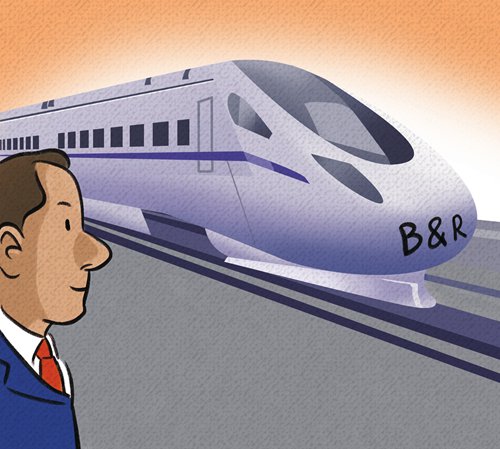Italy joining BRI paves the road to closer EU-China relationship

(GT/Liu Rui)
Chinese President Xi Jinping is visiting Italy from Thursday to Saturday. This marks a historic moment in bilateral relations.
The two countries are expected to sign a memorandum of understanding (MOU) for Italy to join the Belt and Road Initiative (BRI). Not the first EU country to endorse BRI, Italy would be the first among Group of Seven (G7) countries to do so.
Like any initiative that involves China, even before the final details of the MOU are officially released, the visit has drawn public attention, both in Italy and abroad.
The US and the European Union have been the most vocal critics. A spokesperson for US Secretary of State Mike Pompeo warned this could damage Italy's international reputation and urged Rome to be careful.
The US considers BRI an attempt by China to expand its influence to areas that have been traditionally within the sphere of influence of the US. Similar concerns were raised by the US in 2016 when China initiated the Asian Infrastructure Investment Bank (AIIB), which has Italy among its founding members.
The EU is afraid that countries individually forging closer ties with China may undermine the unity of the bloc and in its "EU-China: A strategic outlook" report released on March 12, the European Commission sets out that in the context of the relationship with China, "the EU should deepen its engagement with China to promote common interests at global level." In other words, a united EU is the best way to continue a dialog beneficial to both sides.
No surprise then that Italian public opinion, which generally supports common EU policies, takes such invitation with a pinch of salt. In the last 15 years, especially in cases where the main EU members were not bilaterally or otherwise involved, the EU has been increasingly perceived as an institution defending a fortress through rigid positions.
This has eroded its political weight at the international level. To put it briefly, the EU has lost its attraction as a source of opportunities, but is rather seen as a drag on growth due to limited understanding of the geopolitical and geoeconomic interests of the different regions its members come from. The Italian government has been very clear in saying that it is committed to its role within the EU and NATO, and that fears that supporting BRI may turn it into a Trojan Horse for Chinese products and firms into the EU are unfounded. Nor does Rome believe that BRI will endanger national and EU security.
Prime Minister Giuseppe Conte sees the initiative as a means to improve the bilateral economic relationship and to ramp up Italian presence in the Chinese market.
Trade between the two countries in 2018 was worth 44 billion euro ($50 billion), with China recording a surplus of 17.6 billion euro. While emphasizing that the MOU is not a binding international treaty, Conte pointed out that Italy's interaction with China will follow the guidelines set in the EU-China 2020 Strategic Agenda for Cooperation and the EU Euro-Asian connectivity strategy.
The MOU also calls for the involvement of AIIB, which lends according to international procedures that satisfy EU requirements, such as competitive tenders and studies on the environmental impact of projects to be funded.
Luigi Di Maio, deputy prime minister, minister for economic development and leader of the Five Star Movement, echoed Conte's comments.
He said that the new Silk Road initiative presents opportunities for Italian exporters, but it will not turn into a political alliance.
Responding to the US State Department's criticism, he said that the US remains Italy's main ally and that NATO is the country's natural home.
Being the brainchild of President Xi, BRI is the modern-day equivalent of the famed Silk Road, a network that linked Europe to China and fostered trade, exchange of goods, ideas and cultures.
Like any ambitious initiative, the motives of BRI have been debated since it was launched in 2013.
Critics see BRI as a way for China to expand its political, economic and military influence through an economic and infrastructure development plan that will involve more than 80 countries in Southeast and Central Asia, the Middle East, Africa and Europe.
The world has yet to fully recover from the 2008 financial crisis, and the Chinese effort to revive the economy through a massive investment plan in infrastructure that spans continents is certainly welcome news for many countries.
BRI must not necessarily be seen as a rival to existing development projects, but as a parallel infrastructure development plan that can complement the current European framework.
As long as the rules of fairness, open tender, full disclosure of terms of deals, concern for the environment are respected, BRI can be a meaningful contribution to economic growth and social development.
Alberti is a member of the European Institute for EurAsian Dialogue (EIEAD) scientific committee and an expert on Asia. Manzari is president of EIEAD.

